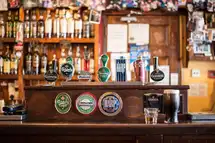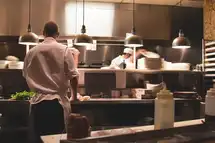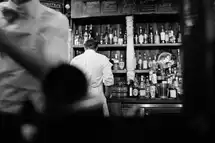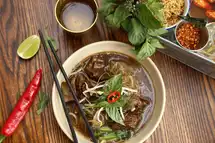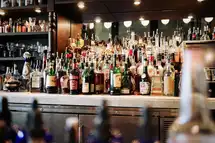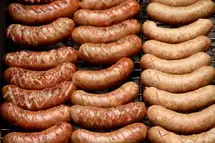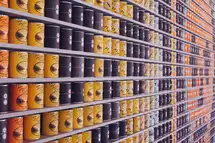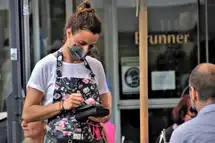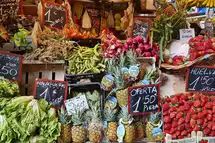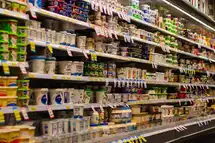Who is a food safety auditor?
A food safety auditor is an individual who audits food safety systems to ensure that they are effective and meet regulatory requirements.
10 Sure Shot Ways to Pass Your Food Safety Auditor's Test With Flying Colors
Who is a Food Safety Auditor?
According to the Centers for Disease Control and Prevention (CDC), about 48 million people fall sick every year due to foodborne illnesses in the United States. While another 128,000 are hospitalized, at least 3,000 people die from these diseases each year. These hospitalizations and illnesses have a huge financial impact on both, individuals as well as the nation's economy. This makes food safety a major concern among public health authorities and law enforcement agencies and it is also where food safety auditors have a major role to play.
A food safety auditor is a professional who performs audits of food businesses to make sure they are compliant with food safety rules and regulations. Food safety auditors may work for government agencies, private companies or non-profit organizations, or individual restaurants. The job of a safety auditor is to inspect food facilities, their supply chain, and review their records to verify that they are following all the required food safety procedures. In case of violations identified during safety audits, they report these to the local public health authorities to make sure the potential risk factors are eliminated.
Food safety auditors undergo rigorous training over months in the process of becoming certified professionals who are authorized to carry out safety audits and checks. They are required to analyze the food safety management systems of restaurants and foodservice businesses, verify their paperwork, and stay updated on the latest rules and regulations to make sure they are enforced.
Steps To Pass A Food Safety Audit- No. 1 Create a HACCP Plan
Restaurants, food producers, retailers and food processors all need to pass food safety audits in order to run their operations. And for this, business owners and workers need to understand the Hazard Analysis Critical Control Point (HACCP) food management system. If you are worried about passing your restaurant's upcoming safety audit, we will take you through the key checkpoints of a food safety audit in this blog.
Review your food safety management system. Prepare a detailed HACCP plan and ensure all HACCP principles are followed without exception. The HACCP principles are- hazard analysis, Critical Control Point (CCP) identification, establishing critical limits, monitoring procedures, corrective actions, verification procedures, and record-keeping and documentation. When a HACCP plan is put into action and is followed thoroughly, businesses automatically reduce the scope for safety hazards.
It's easy to fail a food safety auditor's test if you don't know what to expect and you don't play by the book.
Don't risk failing your food safety auditor's test. Use this checklist to make sure your food safety program is on point.
No. 2 Maintain Discipline
The second measure is to bring discipline to your food management system and your workers. Do not wait until the last minute, or just before the safety audit, to complete food safety processes. Take action throughout the year to ensure that all HACCP guidelines are being followed to the last detail, and no gaps are left in the verification and monitoring stages. If necessary actions are not executed year-round, you will have a lot of pending work on your hands. This will mean your restaurant will automatically fail to meet HACCP parameters, as you will have no records to show the safety measures undertaken. From establishing critical control points, to taking corrective measures in case of violation, you need to have a fully functional HACCP process in order to ensure the public health and Disease Control authorities give you the green light.
No. 3 Team Coordination

Enable your staff to coordinate with the different teams of the business, especially those in charge of ensuring that HACCP processes are followed. This will not only ensure Food Safety, but also keep the team updated about every safety protocol. Doing this will help your team field all the safety auditor's questions with ease. You can alternatively have a technical expert, who is certified in handling food safety management systems and HACCP compliance, carry out all tasks and also train other workers on safety measures and inspections.
No. 4 Stay Updated
Be sure to stay updated on all the latest news and developments regarding food safety regulations in the United States. The rules surrounding food safety, audits and HACCP principles are updated by authorities on a regular basis to deal with new threats to public health. As a restaurant business, your specialists need to stay abreast with these rules and regulations. Updating your workforce about these rules will help you ensure that you are taking all the necessary precautions to protect your customers and employees from potential health hazards, and also abiding by federal and local guidelines.
You might feel anxious about taking a food safety auditor's test.
Prepare for your food safety auditor's test by familiarizing yourself with the expectations and requirements.
No. 5 Maintain Hygiene
The fifth measure to help you pass a food safety audit is to maintain cleanliness and hygiene at your restaurant or foodservice facility at all times. This means regularly cleaning all surfaces, equipment and utensils. You should also have a designated area for storing your clean items and another area for the dirty equipment and utensils. Enforce a system where all your employees wash their hands thoroughly and frequently and also wear gloves while handling food. Be organized about enforcing these processes, take corrective action, and document these events for verification and monitoring.
No. 6 Have Regular Testing
Regularly test your ingredients and finished products for contamination by using accredited laboratories. Also opt for verified and qualified suppliers who are certified as following food safety norms. This will help ensure that any potential problems are detected early and dealt with quickly. Also follow all the verification and monitoring procedures diligently to make sure you can take corrective measures and prevent safety hazards in case of any gaps.
No. 7 Have Clear Answers
During a food safety audit, make sure all your staff members have clear and honest answers to share with the safety auditors. There is no scope for making mistakes, getting confused, or coming up with convoluted messages. Train your staff to answer in a concise and brief way, stating only what is asked of them. Also, try to be clear with your objectives regarding each safety procedure and how they were carried out. A safety auditor is required to carry out detailed interviews with workers and the procedures they follow. These are also recorded for documentation and verificationyou and your team must keep that in mind.
No. 8 Stay Clutter-free
Make sure your restaurant is clean and free of clutter. A messy or cluttered restaurant is a red flag for safety auditors, as it may indicate that proper food safety protocols are not being followed. So take a few minutes each day to tidy up the floor, the dining area, and the kitchen and food prep areas. This will go a long way in impressing food safety auditors and help you keep your restaurant compliant with health codes.
No. 9 Have an Agenda
Try to develop an agenda beforehand on how to go about the food safety auditing process. Or do this as soon as the safety auditors arrive at your premises. Although they may have their own agenda for the procedure, you will have to assist them, so try to secure your objectives too. This will help you and your team become aware of what's next in the auditing process and you won't be taken by surprise at any point.
No. 10 Show Commitment
During the entire process of a food safety audit, a representative of the restaurant management should accompany the public health authorities and the safety auditors, to show the commitment of the owners. Try to attend the entire session and participate actively, fielding questions and assisting your team through the process.
Food Safety- How Can HACCP Software Make a Difference?
HACCP software can help organizations establish and manage their HACCP system and food safety more effectively. The software can be used to track product data, identify critical control points, monitor compliance with HACCP standards, and generate reports on the status of the HACCP system. In addition, HACCP software can provide alerts in case of potential hazards, and avert food safety risks. This will also allow organizations to take corrective actions and prevent problems before they occur, such as avoiding the temperature Danger Zone, abiding by the minimum and maximum cooking temperatures, and so on.
The use of HACCP software can make a significant difference to the ability of an organization to implement an effective food safety management system. By providing tools for monitoring and managing the critical points in the food chain, HACCP software can help ensure that products are safe for consumption and that businesses are in compliance with regulatory requirements.
You have a food audit coming up, and you’re worried you’ll fail it.
Prepare for your food safety auditor's test by knowing what to expect.


